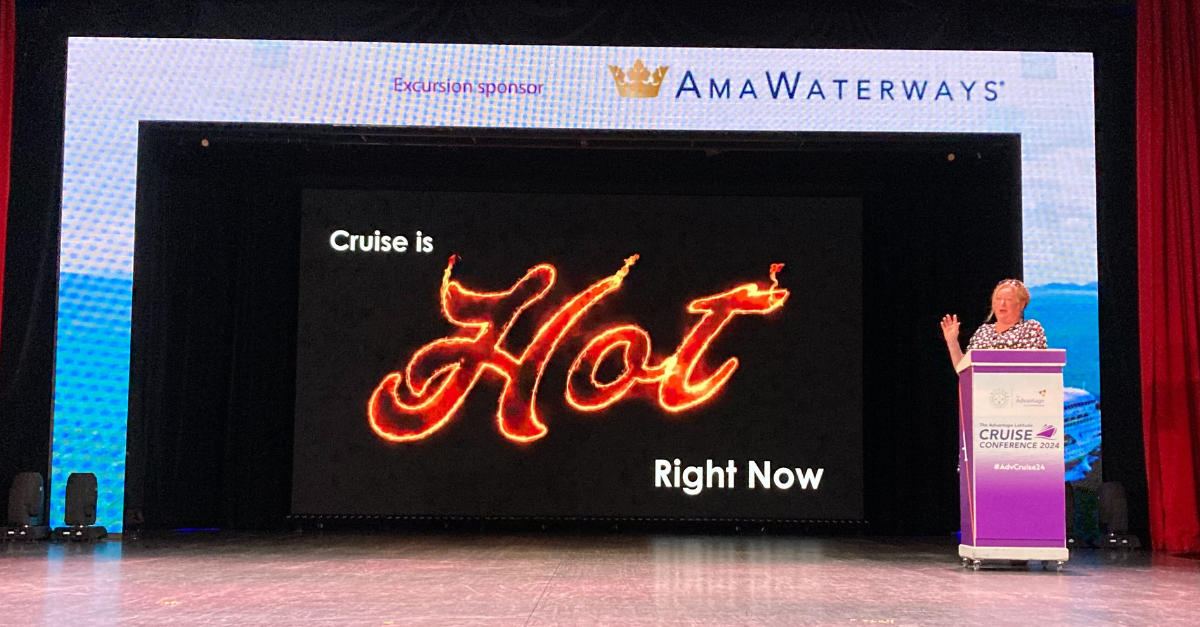Cruise travel has seen remarkable growth in recent months, with the number of UK and Irish passengers exceeding expectations. A new report from Clia highlights this surge, which has surpassed one million travellers in early 2024 alone. Industry insiders suggest this growth reflects a broader shift in holiday preferences.
Increased adoption of cruising holidays indicates a dynamic change in the travel sector. Such trends suggest a growing appeal of cruise vacations among diverse demographic groups, driven by updated travel experiences and greater accessibility.
Cruise Industry Growth in 2024
In the first half of 2024, over one million travellers from the UK and Ireland embarked on cruises, marking a significant milestone according to figures released by Clia. This number represents a noteworthy 10% increase from the corresponding period in 2023. Such growth highlights an increased enthusiasm for cruise holidays within these regions, showcasing a growing trend in travel preferences among UK and Irish holidaymakers.
Passenger Statistics and Trends
The UK’s cruise market saw a record 2.3 million passengers in 2023, a 37% increase over 2022. Clia senior events manager Adele Fitzpatrick-Foster highlighted a 21% rise in passenger numbers for the first quarter of 2024 during the Advantage Latitude conference. She noted that typically, annual growth ranges from 3.5% to 5%, driven by the industry’s ‘managed growth’ strategy.
Fitzpatrick-Foster mentioned an emerging trend of younger passengers, with the average age decreasing to 55 years. Multigenerational travel is also on the rise, with 57% of passengers cruising in groups of three or more, and 28% including three or more generations, debunking the notion that cruises are primarily for couples.
The Composition of the Fleet
The cruise industry’s fleet is set to expand with 41 ships on order until 2028. By the end of 2024, 350 ships are expected to be in service worldwide, with a ‘fleet of thirds’ composition: one-third accommodating over 3,000 passengers, another third with 1,000 to 3,000 capacity, and the rest hosting fewer than 1,000.
Fitzpatrick-Foster emphasized that the introduction of new ships presents agents with 140,000 opportunities to enhance their offerings. The industry continues to adapt to changing market demands, ensuring diverse options for travellers.
She also urged agents to consider pre-and post-cruise engagements, with 65% of passengers staying in resorts pre-departure and 52% post-cruise. Shore excursions, participated in by 61% of British cruisers, were identified as further opportunities for personalization.
Impact of Managed Growth
The strategy of ‘managed growth’ within the cruise industry has been a central factor in the consistent annual increase in passenger numbers, with typical figures rising by 3.5% to 5%.
This approach has allowed for the steady expansion of the fleet, aligning new ship launches with demand. The construction of these new vessels ensures that the industry is prepared to meet the interests of a more diverse clientele, whether through larger or more intimate cruise experiences.
Managed growth not only caters to an increasing number of holidaymakers but also facilitates a more personalised journey experience for each passenger.
Younger Demographics and Multi-generational Trends
The average age of cruise passengers from the UK has notably decreased, now standing at 55 years. This shift is largely attributed to the attractive offerings tailored for a younger audience. Moreover, multigenerational travel has seen significant growth, with families increasingly choosing cruises as a shared holiday option.
This trend is highlighted by the fact that 57% of passengers travel in parties of three or more, and 10% include five or more generations, challenging the outdated view of cruising as an experience suited only for older couples.
By offering activities and itineraries suited for all ages, cruise lines are capitalising on this burgeoning demographic.
Pre- and Post-Cruise Opportunities
Maximising the cruising experience involves more than the voyage itself. According to Fitzpatrick-Foster, 65% of cruise passengers engage in pre-cruise stays, and 52% in post-cruise stays, highlighting the demand for holistic travel experiences that start and end beyond the ship.
These trends underline a strategic opportunity for travel agents to enhance customer satisfaction and retention by offering comprehensive travel packages.
Cruise agents are encouraged to integrate accommodations and excursions into their packages, ensuring travellers benefit from seamless, stress-free journeys.
Customising Cruise Packages
Shore excursions represent a pivotal element of cruise holidays, with 61% of British travellers partaking in them. These outings provide passengers with unique cultural experiences and adventures.
Fitzpatrick-Foster stresses the importance of customisation in cruise offerings, as it plays a crucial role in enhancing customer experience.
By tailoring packages to include pre- and post-cruise activities as well as diverse excursions, agents can attract a broader range of clients and improve service value.
Agents are strategically positioned to personalise travel experiences, catering to varying preferences and expectations with bespoke cruise packages.
The Future of Cruising and Travel Trends
The cruising industry is buoyed by an upward trajectory in passenger interest and industry innovation. The addition of 41 new ships by 2028 points to a robust growth phase, catering to varying demands from large-scale to intimate experiences.
Current trends indicate a shift towards more environmentally conscious and multigenerational traveller experiences, which companies are embracing through specialised cruise offerings.
As the industry adapts to these evolutions, there are vast opportunities for travel agents to innovate their offerings to meet the expectations of a diversifying marketplace.
The cruise industry’s continued growth in the UK and Ireland is a testament to its evolving appeal and adaptability. With climbing numbers and shifting demographics, the sector is well-positioned for sustained success.

